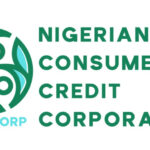On Tuesday, December 12th, 2024. The Governor of Lagos State, Babajide Sanwo-Olu, signed the Lagos Electricity Bill 2024, into law in order to address the state’s electricity challenges following the federal government of Nigeria’s approval for states to generate and distribute electricity in 2023.
While this is a welcome development that I am fully in support of, one of the main reasons why we have been unable to scale power generation and distribution in Nigeria, is that power generation is expensive, and therefore, a bulk of it must be generated, transmitted and distributed at scale for it to be affordable by the masses. For this reason, it is imperative for Nigerian banks and financial institutions to develop financial innovations towards power infrastructure.
Here are the following ways in which banks and financial institutions can bolster Nigeria’s energy sustainability
Investment banks:
Investment banks can partner with international development banks such as African development bank(AFDP) and the world bank to develop syndicated loans that will serve as construction loans in project financing for independent power producers for large scale power generation, transmission and distribution projects. These construction loans can convert to term loans when the project begins operation. Since international development banks usually have favorable loan terms and structure, these financing will enable large power plants to be built with lower levelized cost of electricity. In addition, investment banks can also participate in equity or debt financing for large and medium scale power projects through project financing. Investment banks can also help independent power producers raise bonds for project financing.
- Price war between imported and locally refined fuel
- Nigeria’s renewed quest for the right economic model
Commercial banks:
Commercial banks can also develop green loans for homeowners, residential estates, and manufacturing companies that are willing to have rooftop solar + battery storage facilities or small scale wind turbines. This will improve the grid efficiency as the excess electricity generated can be connected to the grid using net metering.
Large manufacturing companies: large manufacturing companies such as cement plants and flour mills that generate their own power can also power their immediate communities at an affordable tariff as a form of corporate social responsibility.
In conclusion, even though the federal and state governments now have good policies to attenuate our electricity deficiency, those good policies can not materialize to an improvement in our energy security without financial innovations from our banks and the private sector.
Abdulmalik Olajuwon Abdulraheem works as a financial controller at Vestas American Wind Technology Inc., the North American region of Vestas Wind Systems, the world’s leading wind turbine manufacturer.

 Join Daily Trust WhatsApp Community For Quick Access To News and Happenings Around You.
Join Daily Trust WhatsApp Community For Quick Access To News and Happenings Around You.

